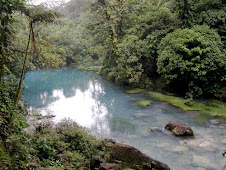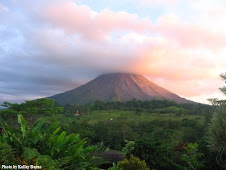I started teaching teaching Spanish on the west side of Chicago two weeks ago. While I am overwhelmed by the challenges of teaching 450 students from grades ranging from K to 8th and everything in between, I am excited to engage students in the Spanish language. The most difficult aspect of teaching, aside from general classroom management problems, will be the commitment to using the target language in the classroom. Yesterday my curriculum specialist warned me that students won't have the patience to sit through a class in which I'm speaking Spanish the entire time. While that's a possibility, I think it will depend entirely on my delivery.
If I can scaffold my lessons (provide adequate support for newly introduced material) so that what I'm presenting is given the proper context for understanding, students will soon catch up with the material and extract meaning from the spoken language. For example, since I am fortunate enough to have an LCD projector I can use images in a PowerPoint presentation to give context clues that--along with prior knowledge of Spanish and sense of cognates--will allow students to grasp new vocabulary AND interpret the meaning of complete sentences.
While I don't plan on building a Spanish curriculum that breaks any ground in language instruction, I would at least like to resist the temptation of teaching Spanish as a purely academic pursuit taught in English. Memorizing verb conjugations and whacking piñatas on Cinco de Mayo is one way of getting exposed to the Spanish language, but it's insufficient for true proficiency in the language. To speak a language you need to practice speaking the language in as natural of a setting as possible. That setting must be immersive!
I must admit that I have an intense fear of mediocrity. I don't want it for myself and I don't want it for my students. I feel that if I cave in and do what's most expedient for myself in the short term, I will give my students average instruction that will prevent them from closing the academic achievement gap with their peers in more affluent communities.
Sure, two Spanish classes per week won't turn low-performing students into high-performing ones, but it certainly wouldn't hurt. Put more convincingly, studies show that students with foreign language instruction perform better in literacy and math. This is more a stream of consciousness type of post, so I don't have the time or the will to back that up at this time, but let's just take it as a give for now (at least until I can write a more complete post about it later).
If I can help out my students' overall academic performance by teaching them the four main skills of listening, speaking, reading, and writing in Spanish, I am going to take advantage of that opportunity the best way I know how. I don't want to settle for the mindless regurgitation of vocabulary and verb forms, which won't be retained and won't be transferable to other realms of their academic and personal lives.
I'll spend my Labor Day weekend trying to improve my lesson plans for upcoming weeks. Maybe I will end up caving in and take it down a notch on my Spanish-to-English ratio in class, but I won't go down without a fight.


